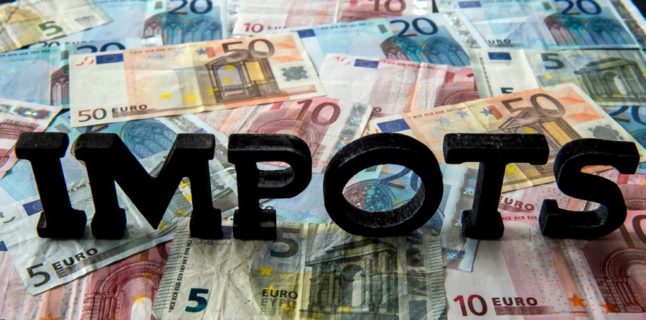French tax authorities have threatened to issue fines of up to €150 for those property owners fail to fill submit the new compulsory tax return.
Property owners in France have until June 30th, 2023 to file the new return, which specifies whether the property in question is a primary or secondary residence.
How much is the fine?
It is set to a fixed amount of €150 per property according to the French Public Service website.
Under what circumstances could I be fined?
You can be fined if you fail to submit the declaration prior to June 30th. You can also be fined if the declaration is found to be erroneous, incomplete, or missing information.
When could the fine be issued?
The fine would only be issued after June 30th – the final date to file the tax declaration – if tax authorities do not receive the form by the deadline.
🏠Démarches fiscales | Vous êtes propriétaire d’un logement ?
Notre service « Gérer mes biens immobiliers » s’enrichit pour vous permettre de vous conformer à la loi et déclarer les occupants de vos biens à usage d’habitation avant le 30/06.
➕ d'infos ➡️ https://t.co/CXksnvhBoU pic.twitter.com/cnLVepOGKE— Direction générale des Finances publiques (@dgfip_officiel) January 23, 2023
How can I fill out my declaration?
If you live in France and already make your annual tax declaration online then this process should be fairly easy – head to impots.gouv.fr, log in and then click on Biens immobiliers (“Real Estate”) in the menu bar along the top of the website.
You will then be directed to the “Manage my real estate” service of the site which will then list the property or properties in your name, and you can fill out the déclaration d’occupation for each, stating whether it is your main residence or a second home.
The Local has put together a guide to the new tax declaration and how to fill it out here.
READ MORE: France brings in new tax declaration for property-owners
If you have any questions or difficulties in completing the declaration, you can contact the help phone number at 0 809 401 401 – keep in mind that the operator may only speak French, so if you are worried about your language level you may want to ask for assistance from a proficient French speaker.
You can also reach out to the tax authorities using the secure messaging system on the Impôts.Gouv.fr website. The page “J’ai une question sur le service Biens immobiliers” (“I have a question about the Real Estate department”) will allow you to send messages and ask questions, albeit in French.
You can also find the location of your local tax office here.
The new tax declaration applies to anyone who owns property in France – whether it is their main residence or a second home – including those who live in another country. If you do not own property and only rent your home, then this does not concern you.
Keep in mind that the tax return is not an extra tax, it’s simply an extra piece of paperwork that has to be filled in, known as a Déclaration d’occupation, and this declaration is concerned with whether the property is your main residence or a second home.
The document will be required this year because of recent changes to the property tax system. There are two types of property tax in France; taxe foncière which is paid by the property owner and taxe d’habitation which is paid by the property occupier. If you own your home home, traditionally you paid both.
READ MORE: UPDATE: New French property tax declaration – your questions answered
However, taxe d’habitation is in the process of being scrapped for most people, and now only high-earners and second-home owners pay it. The problem is that the tax office don’t have a record of whether a property is used as a main home or a second home and therefore don’t know who to send bills to – hence the new declaration.



 Please whitelist us to continue reading.
Please whitelist us to continue reading.
Member comments